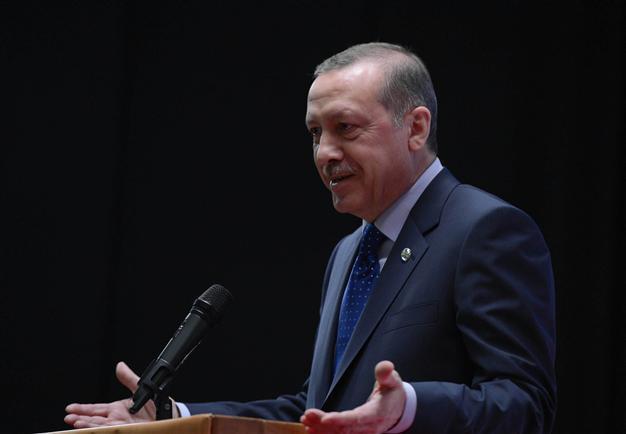Turkish PM signals headscarf freedom for public workers
ANKARA - Hürriyet Daily News

Prime Minister Recep Tayyip Erdoğan. AA photo
Prime Minister Recep Tayyip Erdoğan has suggested that there is no need for a constitutional change to lift a ban on headscarves in government offices, while adding that there was no obstacle preventing covered women from becoming mayors or lawmakers.“There is a place and a time for everything. Holy birth is painful. It has been 10 years since we came to power and some bans that were the legacy of the Feb. 28 [1997 post-modern coup] were lifted during the 10 years. Some unjust treatments, which prevailed until our government took office, have been eliminated,” Erdoğan was quoted as saying on Feb. 27, while speaking to a group of journalists while en route from Vienna to Istanbul.
Ban from Feb 28 process
Erdoğan made the remarks, which were published in several newspapers on March 1, after he was reminded that many university students with headscarves had to go abroad to pursue a university education during the Feb. 28 process. There is no clause in the Constitution which bans headscarves, meaning that there is no obstacle preventing such women from wearing a headscarf while sitting as a mayor or an MP, he said. “A ban which is not in the Constitution cannot be protected by the Constitution,” Erdoğan said, adding that the issue could be resolved through changes in regulations.
Deputy Prime Minister Bekir Bozdağ, for his part, said March 1 that there was no constitutional or legal arrangement that permits a ban on headscarves. He noted that the current headscarf ban was a result of “unacceptable” administrative initiatives. “I believe that these practices will disappear in time and Turkey will experience normalization in this field, too,” he said.
İbrahim Kaboğlu, a constitutional law professor, said politicians were attempting to use the law as cover for their political desires. The law is being used as an instrument in the context of preferences and aims to impose a certain philosophy of life, according to Kaboğlu. “The constitutionality of the headscarf ban is not a matter of constitutional law; it’s a matter of political will. The problem is political rather than legal. Mr. Prime Minister is trying to find a legal cover for his political desires,” Kaboğlu told the Hürriyet Daily News.
According to Atilla Kart, a member of Parliament’s Constitution Conciliation Commission from the main opposition Republican People’s Party (CHP), wearing headscarves while working as a public servant or a lawmaker are two different cases. “For public servants using public authority such as judges, security officials and teachers, there’s a legal and constitutional basis for the headscarf ban. There are also European Court of Human Rights rulings and international convention provisions forming the basis for the ban. I am against allowing headscarves for public servants in a position of public authority,” Kart told the Hürriyet Daily News.
“Allowing headscarves for lawmakers should be debated considering its political and social impacts,” Kart said.
















